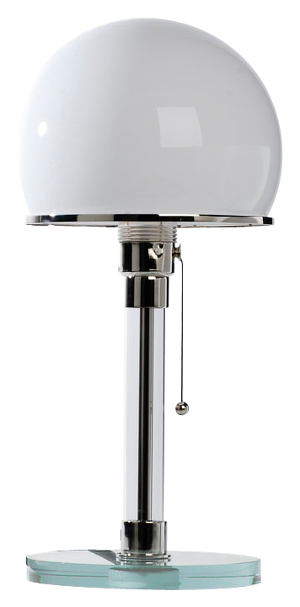Consumer products
An important goal of the Bauhaus was to convince industry to serially manufacture products designed at the school. In practice, however, serial production remained limited, and many objects were hand-made. In addition to furniture and fabrics, the school produced an extensive collection of dishware, appliances and consumer goods for modern living. The combination of high artistic standards, precise knowledge of materiality, and quality craftsmanship helped shape the image of the modern product designer.
The collection of the Bauhaus-Archiv comprises an extensive range of works produced in the metal and ceramics workshops at the Bauhaus, such as the infusion teapot by Marianne Brandt and the Wagenfeld lamp by Wilhelm Wagenfeld and Carl Jakob Jucker. In addition to works created at the Bauhaus, the collection owns items produced prior, parallel to and after the founding of the Bauhaus. Not only do these pieces document the influence of the Bauhaus on contemporary design, but also highlight their complex relationship to the traditional arts and crafts and industrial design.
